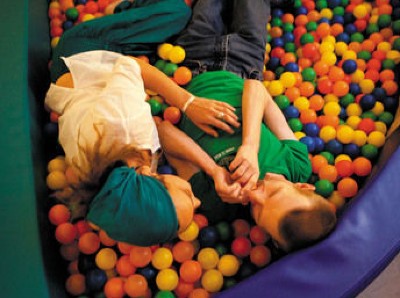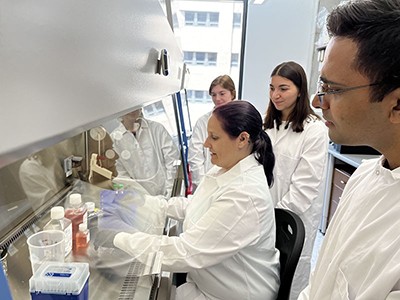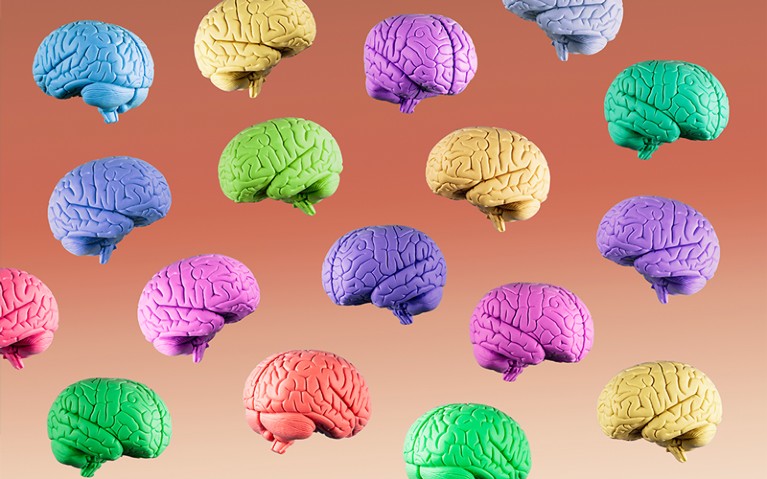
Credit: Getty
Across research, neurodivergent people face persistent barriers to success. Neurodivergence — a term describing people whose brain develops or works differently from most people’s, for medical or non-medical reasons — can bring day-to-day challenges that are often invisible to managers and colleagues, and a culture of ableism persists in many workplaces. Neurodivergent workers are often made to feel excluded and undervalued.
Neurodivergence can be genetic and innate, or produced by trauma or other brain-altering experiences. The difficulties faced by neurodivergent scientists vary greatly between individuals, by geography and by culture, but statistics show that neurodivergence is extremely common, affecting between 15% and 20% of the global population1. And yet recruitment practices systematically disadvantage neurodivergent people, who are more likely to be unemployed than are individuals with any other disability.
One clear example of this disparity can be observed in autism, which is thought to affect just under 1% of the world’s population, although estimates are higher in high-income countries2. Despite a growing public awareness of how autistic people can be an asset in the workplace, members of this group are more likely to be unemployed than are people with any other disability.
Nature asked neurodivergent researchers what changes they’d like to see to create a more equitable workplace.
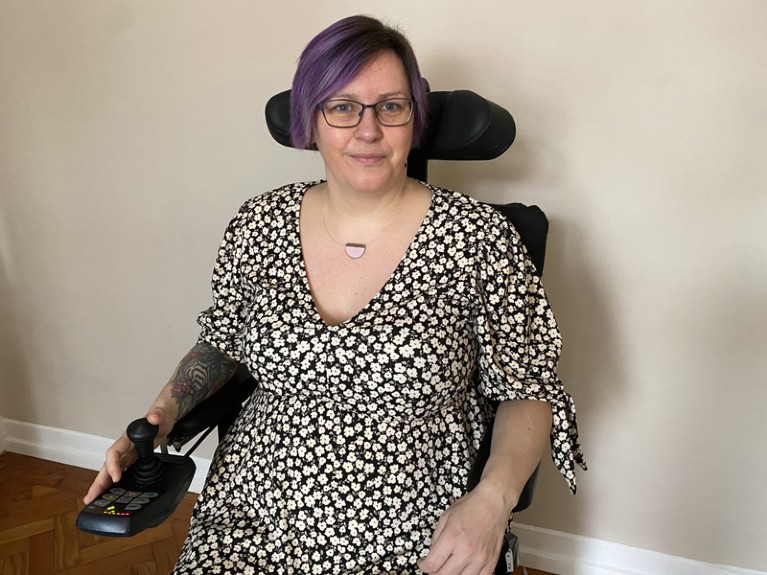
Aimee Grant warns that a return to in-person-only meetings could leave neurodivergent people feeling excluded.Credit: Matthew Arthur
AIMEE GRANT: Language and identity matter
Senior research officer at Swansea University’s Lactation, Infant Feeding and Translational Research centre (LIFT).
I wasn’t diagnosed as Autistic until the age of 37, in 2019. I am also Dyslexic, and suffer from mast cell activation syndrome. This is a condition that causes repeated episodes of severe allergy symptoms, such as hives, swelling, low blood pressure and extreme fatigue. Because of this, I am an electric-wheelchair user. This means that being out of the home is challenging (and sometimes unsafe).
Since joining Swansea University, UK, in 2021, where I’m a public-health researcher, I’ve worked from home and been able to excel. I’ve also had time to think about what it means to be Autistic. I’ve always been strongly focused on social justice, and researched the lives of marginalized mothers, including those living in poverty, for my PhD in social policy at Cardiff University, UK. The university’s Lactation, Infant Feeding and Translational Research centre (LIFT), where I work, is focused on pregnancy and early parenting experiences, so I completed a systematic review on Autistic people’s experiences of infant feeding, and have been building on this ever since. Autistic people are systematically marginalized and discriminated against, and it causes damage: the suicide rate is nine times that for non-Autistic people.
International studies report unemployment rates of up to 60% for adults with Autism. In the United Kingdom, the Office for National Statistics reports that just 21.7% of Autistic people were employed in 2021. However, these statistics are likely to be a significant underestimate, owing to the underdiagnosis of Autistic adults in the United Kingdom. As I read more from Autistic authors, I knew I had to change the course of my research to take account of the marginalization and discrimination they are exposed to.
There are benefits to being Autistic in my job; decades of ‘masking’ — a complex process of observing and practising behaviour that is praised in others — have enabled me to monitor precisely what another person is doing, and to record this in detail. Masking means that Autistic people are often very adaptable, and good at blending in with various groups of people. This is valuable when interviewing research participants and securing support for projects from gatekeepers — although long-term masking is associated with burnout and suicide3.
The biggest challenge for me is my need for silence, with small interruptions making it hard to return to my previous thoughts. Autistic people, and many of those with other forms of neurodivergence, get into a ‘flow state’ in which everything feels easy and very enjoyable. However, these flow states can be readily disrupted.
How Zoom helped the neurotypical world hear my autistic voice
In the United Kingdom, all Disabled people are able to apply for an Access to Work grant from the government. My funding covers things such as software, so that I can dictate and have documents read to me. It also pays for me to have a brilliant support worker, Carol, who deals with as much bureaucracy as possible on my behalf. For instance, she helps me out when university support services are provided through online systems that are painful for me to use. And when support staff are stretched thinly, she chases up my requests for assistance. She also takes notes in meetings (because of my working memory deficit, a common limitation of Autism) and proofreads my work (owing to my being Dyslexic). This allows me to spend more time productively on my research.
The COVID-19 pandemic introduced ways of working that Disabled people have been requesting for decades — for instance, an open attitude towards remote working and video conferencing, which enable neurodivergent employees to be more easily involved in meetings. Now, many fear a push back towards the old ways of working, and to in-person-only meetings that exclude them.
In the United Kingdom, it is unlawful to discriminate against people in respect of their disabilities, in relation to employment, the provision of goods and services, education and transport. So, in universities, line managers are expected to manage reasonable adjustments, with limited training and resources. I am fortunate in my current role to have a very supportive manager.
Terminology and use of language are important; for example, using identify-first language (Autistic people) rather than person-first language (people with Autism). I and many others also prefer to capitalise the ‘A’ in Autism as a marker of culture, community and identity. A guidance document on this from the Sage journal Autism is a good reference point for best practice. And the Autistic Self Advocacy Network, a US non-profit advocacy organization run by individuals on the Autism spectrum, provides more information about this. (Nature’s style is to follow common practice in the relevant community, or the preference of named individuals, if known).
Unless non-Disabled people spend a long time engaging with the work of Disabled people and trying to understand their experiences, they can’t really grasp our everyday challenges. But the problem is not limited to work colleagues: it extends to friends and family, too. When people can’t understand the use of a highly visible mobility aid (my wheelchair is bright purple), we have a long way to go before we can achieve a widespread and accurate understanding of something less visible, such as Autism.
Ensure that your awareness of Autism is coming directly from Autistic people, and when an Autistic person tells you something about their experience, listen.
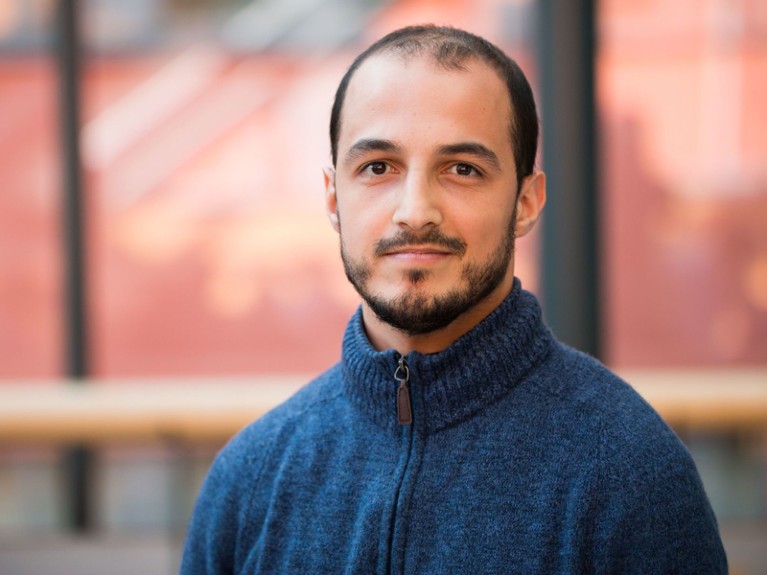
Ouissam El Bakouri encourages disabled scientists not to shy away from speaking to the media, to boost visibility for the neurodivergent community.
OUISSAM EL BAKOURI: More visibility for scientists with disabilities
Photochemistry researcher at the University of Girona’s Institute of Computational Chemistry and Catalysis (IQCC) Spain.
One of the biggest misconceptions about cerebral palsy is that it is a purely physical condition. Not only that, but people too often tend to dismiss those of us living with it as not having the capacity to contribute professionally. My disability comes with neurological challenges, but it doesn’t slow me down mentally; I bring a lot to the table.
For me, cerebral palsy affects my daily actions, such as walking, eating or getting dressed: I perform them slowly, and sometimes with difficulty. But the biggest challenge I face day to day is verbal communication: my speech is slow and sometimes difficult for people to understand.
When applying for jobs, I always state my disability on my CV. If I have to tell people face to face, it makes me self-conscious. It’s better to make them aware beforehand or during an informal meeting.
I’m originally from Morocco, but I came to Spain when I was three years old. Growing up, I was shy and uncomfortable socially, and a school psychologist told my parents that I wouldn’t be able to stay in mainstream education. Luckily, they refused to accept that prognosis, and around 20 years later, in 2017, I received my PhD in chemistry from the University of Girona. After graduating, I spent three years as a postdoctoral researcher in Uppsala University, Sweden, before returning to Girona last year as a postdoctoral fellow; I am currently studying photochemistry there.
Seeing the spectrum entire
Interacting with other fellows in the laboratory and leading a group project are things I never thought I’d do, and that has boosted my self-esteem. But not being able to express my thoughts as quickly as they come is frustrating. It means that I often change my words to make things simpler to say — for example, I try to avoid starting a sentence with a “C” or “R” sound, which I find difficult. E-mail helps a lot in that regard, because I can communicate more effectively that way than I can verbally.
Cerebral palsy is not something I tend to discuss openly with my colleagues, but I know they will support me in whatever I need. The fact that they give me the necessary time to communicate with them and answer questions clearly indicates their level of empathy and respect for my condition.
Despite the challenges I face, I do believe that building a career in science has improved my confidence and self-esteem. I live by the philosophy that nothing is impossible: everything can be overcome with effort and support from other people.
People living with cerebral palsy don’t get sufficient visibility, and I don’t see myself reflected in the workplace. I have never had the chance to meet other neurodivergent scientists with similar difficulties to mine, and that makes it difficult to compare my experiences.
I think the most important thing that colleagues and collaborators can do is to get to know the neurodivergent community better. For this reason, I would encourage disabled scientists to say yes to public-facing activities and not be afraid to speak to the media by means of written or oral interviews, if they feel able to: it all helps us to get more visibility.
And more could be done to encourage neurodivergent youths with an interest in science, to make them feel empowered and confident enough to pursue a career in it. I know that, as a teenager, I would have liked to see a more diverse range of people talking about science and sharing their experiences on television and elsewhere. Clearly, the path is not always easy, but there are plenty of good people who will happily help.
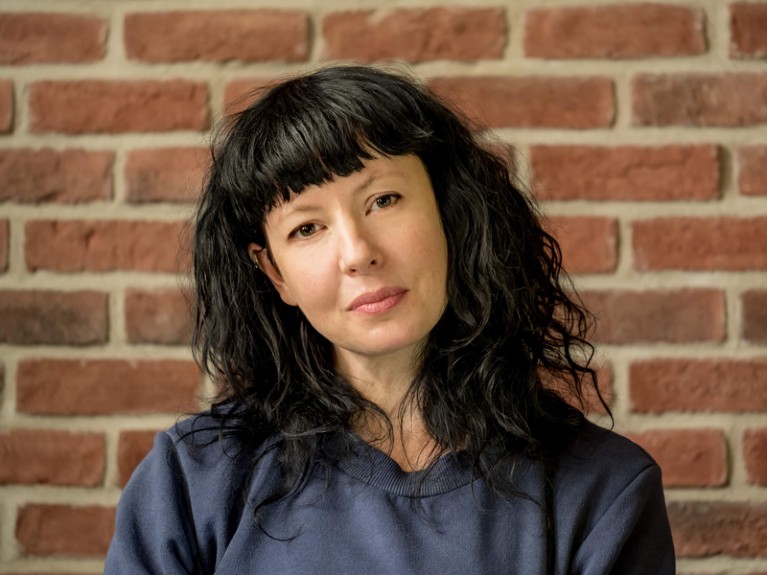
Heather Newell finds academia’s ‘publish or perish’ culture particularly stressful, and advocates a move towards ‘slow science’.Credit: Marie Mai Perron
HEATHER NEWELL: Slow science for everyone
Professor of linguistics at the University of Quebec in Montreal (UQAM), Canada.
Like many women with attention deficit hyperactive disorder (ADHD), I was diagnosed late, at the age of 44, after decades of struggling with different diagnoses and medication. It was truly transformative: getting this diagnosis and the right medication has allowed me to improve my focus, feel less anxiety and better regulate my mood, and I’m in a pretty good place.
It has also allowed my medical team to focus on adaptations that are specific to my diagnosis. Furthermore, I have been able to talk to, and commiserate with, other people I know who have ADHD, and finding online communities to discuss it with has been very comforting. I’ve also been able to do my own research on ADHD and participate in my continuing treatment.
The sense that I can do something to improve my health, that I am not alone — and that when I can’t do something, I have a good idea why — has made me feel so much more comfortable with myself, and hopeful for a future that is less hard. With colleagues I am close to, I am very frank about my diagnosis, but I want to be able to be more open about it in general.
In September, I submitted my application for full professorship in the department of linguistics at the University of Quebec in -Montreal, where I work, and there was a space on the form to talk about career breaks (such as medical or parental leave). In the past, I have been forced to take medical leave, and I had to decide how much information to include on this. I mentioned this to one colleague, who said: “You don’t have to put your diagnosis in there.” He was trying to be reassuring, but it made me really consider the stigma there is around neurodivergence and mental issues in general. I find it interesting that in a place of higher learning, full of well-read people (and people who have a statistically high rate of psychological issues), the issue is still so stigmatized.
Hiring and being hired: faculty members share their stories
ADHD affects my powers of organization, my focus, my stress levels and my emotional regulation. It can easily get frustrating, and it makes my job much harder. I have to make sure that I am on top of things, well fed, rested and exercised. That’s important for people with ADHD, because every little distraction can easily knock us off our game. Of course, being in control in this way is not always possible. I go through periods when I find it very difficult to focus, and also through periods of hyperfocus, which can be the saving grace of people with ADHD in academia. When it kicks in at the right time, it can be a super-power. On the other hand, it is exhausting, and unhealthy, and the recovery from a bout of hyperfocus can be long.
The period between hiring and tenure is a stressful for those who have to go through it (many colleagues in European countries do not). Being neurodivergent adds an extra layer to this tension. Anyone with ADHD who makes it to the point of being hired as a university professor has built up a lifetime of coping mechanisms, and is high functioning. But, when I was an early-career academic, I had never been under stress like it in my life. The fact that I was yet to be diagnosed with ADHD meant that I had no specific adaptations for work in place, and the result was that I suffered stress-induced burnout. Given the stigma around mental health — and the fear that I would be seen as not being able to ‘cut it’ in academia — I did not seek out the help I needed until it was too late.
The publish-or-perish culture in academia means that we are constantly taking on lots of projects that divide our focus. A change in culture is needed. I would love the whole system to move to what is called slow science. But in the meantime, it would help if universities could hire more support staff — to help with administrative tasks such as filling out forms, organizing calendars and providing more-detailed transcripts of meetings.
Through my own experiences with ADHD, I am able to be more empathetic towards students who come to me feeling stressed (a common occurrence). As someone who has a secure position in academia, I think it is going to become increasingly important for me to talk about it, even knowing full well that some people will see me in a worse light because of it. It would make me very happy to know that I had made some small difference by removing some of the stigma around ADHD.
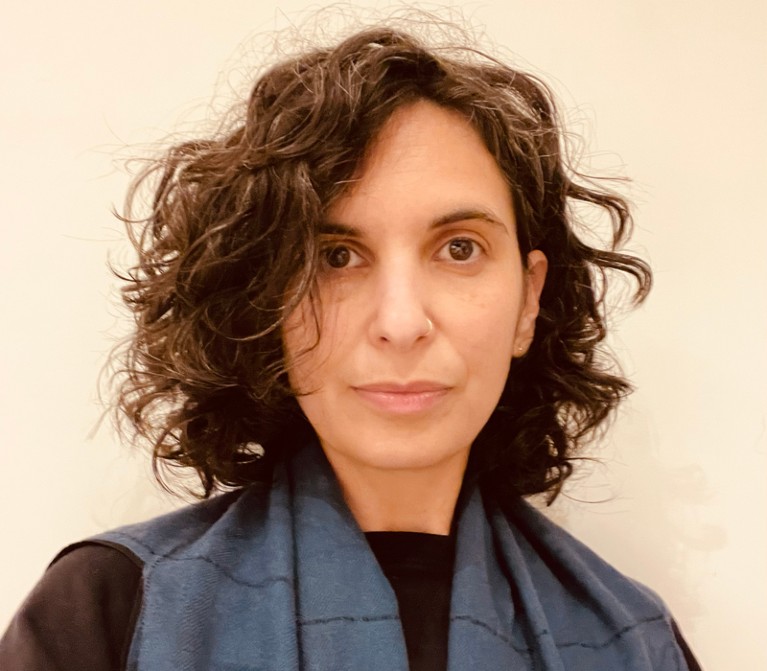
Little support is available for academic staff who are neurodivergent, says Jennifer Leigh, who warns that the risks of disclosure can outweigh the benefitsCredit: James Breslaw
JENNIFER LEIGH: Disability can affect anyone
Senior lecturer in higher education and academic practice at the Centre for the Study of Higher Education, University of Kent, UK.
I was only diagnosed with ADHD earlier this year. Receiving a late diagnosis can be challenging, and it has encouraged me to re-evaluate many aspects of my life, including school, university and work. Having the diagnosis felt validating. It was also a relief; it gave me more insight into myself and allowed me to start the process of becoming more effective in my work and life.
However, it is really important to say that self-diagnosis is also valid for many, because gaining a formal diagnosis for a neurodivergence or a chronic illness is not an equitable or easy process. It is gendered, racialized and discriminatory. This is particularly true for those who can achieve academically, or who can ‘mask’ effectively, because they are more likely to fall through the gaps in the system. They are not ‘failing’, so they are not seen to require help or support.
A large proportion of my work at the University of Kent, UK, concerns marginalization in science and lived experiences of ableism in academia; it is part of a wider effort to use creative practices to bring about social justice. This means that the challenges faced by people as a result of neurodivergence combine with challenges arising from other factors, such as gender, race, disability, sexuality and ethnicity.
There are still many negative perceptions around neurodivergence, chronic illness and diversity. This is particularly the case in academia, where we are expected to be intellectually excellent — and to work in an environment that is incredibly competitive and that demands hyperproductivity as a matter of course. It can be very difficult to admit to having a difference or a vulnerability that others might think means you are not capable of doing your job. For example, having different ways of communicating can cause difficulties that are perceived as a personal deficit. One reason for increases in late diagnoses such as mine could be that the pandemic stripped away many people’s networks and support systems. This exposed places and ways in which they struggled, while at the same time removing many situations in which they might have previously masked their neurodivergence.
Burnout and breakdowns: how mid-career scientists can protect themselves
Society still has a lot of catching up to do. People still assume that being neurodivergent is a deficit. Shockingly, I recently heard a clinical psychologist express the view that autistic people are unable to hold down a job, have friends or form a relationship — and this from someone responsible for diagnosing autism in adults. Equally, there are many misperceptions around ADHD. This is damaging, because it means that people can be denied a diagnosis and the potential to understand themselves better, find a community that they can feel part of, get support and gain access to medication (if appropriate).
In academia, disability, chronic illness and neurodivergence are seen as things that, for the most part, affect students rather than staff. There is little support available — and, for many, the risks of disclosure tend to outweigh the benefits.
Groups such as the National Association of Disabled Staff Networks’ STEMM Action Group are working hard to highlight issues affecting disabled scientists, work with funders and higher education institutions, and provide recommendations on accessibility. In a recent paper3 on accessible labs, my co-authors and I state that the easiest and most cost-effective way to support neurodivergent (and all) scientists in the lab is to employ qualified and expert technicians, giving them a career structure and opportunities for progression and recognition. This ensures that the environment and equipment is properly maintained, thus reducing noise and ensuring that labs are clear and free from clutter. It also has the benefit of providing and valuing alternative career paths for scientists, as advocated by funders such as UK Research and Innovation and the Leverhulme Trust.
The fact that funders are recognizing the need for change is encouraging — as are the changes we are seeing in some research communities, driven by networks such as the international Women in Supramolecular Chemistry advocating for equality, diversity and inclusion. However, we need to ensure that there is follow-through, and that we all work together to bring about positive changes in terms of policies and practices.



